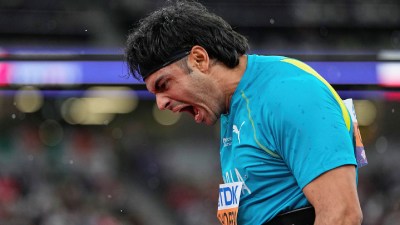How about that touchy-feely approach here?
As D-day dawned, the sums saw the two major contenders for the US presidency upping their ad spends in an unprecedented manner. Several te...

As D-day dawned, the sums saw the two major contenders for the US presidency upping their ad spends in an unprecedented manner. Several tens of millions of dollars spent in just this last week. When the totals come in they will show the monies spent buying ad time and space, printing posters, handbills and other bits and pieces proclaiming the merits of the candidate and the demerits of his opponent reaching astronomical numbers! Yet our gurus so often proclaim that political advertising does not make a difference. Maybe, just maybe, what they really mean is that bad political advertising or below threshold spending on political advertising does not work.
Let us evaluate whether or not political publicity has any role to play in helping voters make their choice. I submit it does, along with other forms of mass media communication, such as candidate debates, interviews, voter interaction, etc. The increasing spread of TV has made it possible for groups previously out of reach of mass media to actively participate in media generated dialogue and debate. Television crosses barriers of illiteracy and reaches out to people across the country.
The present policy of banning any form of political broadcasts excepting the usual expert panel chats other than TV time allotted to recognised national political parties on national networks is a farce. Have you ever watched these rather sad, stiff-backed, solemn-faced worthies droning out their respective spiels? Well, I have, and I am not sure whom I should feel sorrier for, the viewer or the politician! But what I am sure is that this restriction serves voters badly by cheating them of opportunities to experience8217; and assess potential leaders.
Imagine if we had had a series of one-on-one debates between the declared prime ministerial candidates: NDA8217;s Atal Bihari Vajpayee and his opponent Sonia Gandhi, of the Congress Party. Would we not have been better able to judge their merits as seasoned Indian statesmen? We would observe them responding to questions of concern to us. This exposure would have revealed so much of their worth as contenders for leadership of an amazingly complex nation facing serious challenges while approaching a decade of potentially great promise. How much more significant would these encounters have been than the rent-a-crowd tamashas with brief appearances, the waving of arms and the mouthing of platitudes while security-insulated from the people they aspire to serve! There is such a sad irony in the world8217;s largest democracy being governed by people who dare not mingle with the crowds. The contrast with the touchy, feely US scenes makes me so envious.
In a similar manner, political advertising explaining a party and their candidates stand on issues, on their record and their vision for the future, would serve the purpose of making people cast their vote on an informed basis. Two issues arise: One, how does one ensure truth in advertising; and two, where do they get the money to spend. The answer to the first must rest with the good common sense of the Indian people. You can, perhaps, lie once, but the increasingly aware and smart Indians 8212; especially women 8212; are no fools. They won8217;t allow themselves to be fooled a second time. As regards the second, my friend and the much admired CVC, Vittal, has made the eminently practical suggestion of allowing contributions from individuals and groups, including corporates, provided they are above board and publicly declared. I cannot see why people should be barred from expressing their support 8212; through time or money 8212; for the political party they favour. Surely, that is the fundamental basis for any democracy:government by the people for the people.
- 01
- 02
- 03
- 04
- 05































